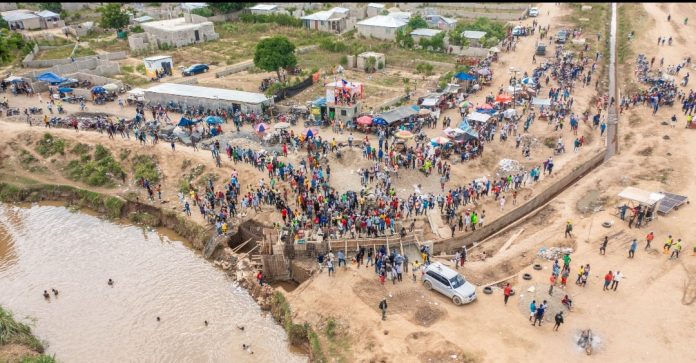By Alex Popa
Haiti and the Dominican Republic (DR) have never been on excellent terms, but the situation has become even more volatile since September. The reason for the current dispute is the Massacre River, which the Haitian people intend to use to build a water canal to provide much-needed water to Haitian farmers.
The measure is meant to counteract the effects of the drought and the farmers’ poor access to reliable water sources. Such a measure would boost the economy and support local agriculture, but things are never as easy as they seem. Haiti’s attempt to begin the construction of the canal was met with an unbending and less-than-friendly attitude from the Dominican Republic government.
The reason? The measure “…violates several border treaties between the two nations which share the island of Hispaniola”, according to an official DR statement.
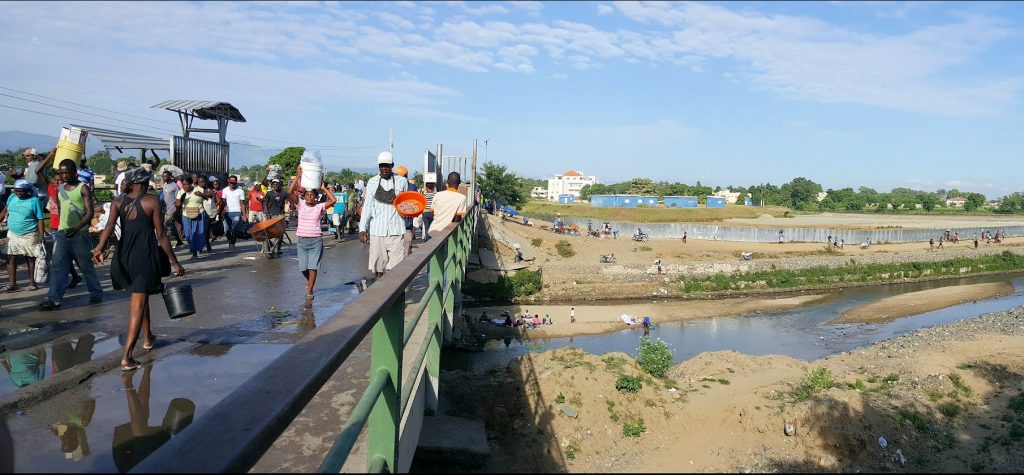
The measure is meant to counteract the effects of the drought and the farmers’ poor access to reliable water sources. Such a measure would boost the economy and support local agriculture, but things are never as easy as they seem. Haiti’s attempt to begin the construction of the canal was met with an unbending and less-than-friendly attitude from the Dominican Republic government.
Where It All Started
The dispute over the Massacre River between Haiti and the Dominican Republic goes back almost 100 years, ever since Rafael Trujillo, the Dominican dictator, forced all Haitian farmers without official titles living on the Dominican bank to return to the Haitian one. The measure essentially forced the farmers to leave their homes and land. Naturally, few obeyed the order.
As a result, Trujillo sent the army to “assist” those too stubborn to leave, which resulted in a bloodbath. Over 20,000 Haitians died during the event, which remains a stain on DR’s history to this day. The DR-Haitian border was only reopened during Salvador Jorge Blanco’s presidency, who managed to re-ignite the relationship between the two states.
The situation was aggravated once more this September when Dominican President Luis Abinader again chose to close the border over the canal dispute.
How It’s Going
Al Jazeera offers firsthand reports on-site, and the situation is appearing to grow desperate by the hour:
“It is a scene that repeats itself at the Dominican Republic border town of Dajabon twice a day: A queue of Haitians fills the street, trailing across a couple of blocks and ending at a crossing where soldiers are stationed.
From there, they cross a border bridge on their way home to Haiti, the country with which the Dominican Republic shares an island.
They come carrying mattresses, clothes baskets, suitcases, and cardboard boxes. Anything that can hold the possessions they’ve built up during a stay that for some has lasted for years in the Dominican Republic.
They’re going voluntarily. Sort of. Most of the Haitians that we spoke to say they have faced pressure or harassment from Dominican security forces to leave.
Their departure coincides with not just renewed but increased tensions between the two countries.”
According to ABC NEWS and several other news outlets, authorities in the Dominican Republic say they recently arrested an immigration agent accused of raping a Haitian woman in a detention cell at the country’s main international airport in the presence of her 4-year-old son.
Furthermore, Haitian migrants living in the DR claim they face violence and discrimination from the official security forces. Some have been thrown out of their living spaces, children included, in the middle of the night. Many are deported, as the Haitian-DR border is open one way – to Haiti. This causes massive problems for Haitians who come to DR for food for their families that they cannot procure at home.
What’s worse, neither the army representatives nor those of the immigration ministry have come forth with any official statements. Both institutions have declined to comment on the issue, but President Luis Abidaner has been loud and clear: “If there are uncontrollable people there, they will be uncontrollable for the Haitian government, but they will not be uncontrollable for the Dominican government. The entire border of the Dominican Republic, land, sea, and air, will be closed for as long as necessary”, says France 24.
The President’s stance comes as no surprise given his strong anti-Haitian stance, which has become apparent since he rose to power. That and the fact that, according to the UN, Haiti’s capital, Port-au-Prince is almost entirely under gang control and plagued with gang-related violence such as kidnappings, armed robbery, and so on. Some believe that this, paired with the massive influx of Haitian migrants, might spark economic and social problems in the Dominican Republic.
The President has used this rhetoric, along with Haiti’s violation of the border treaty, to close the borders completely.
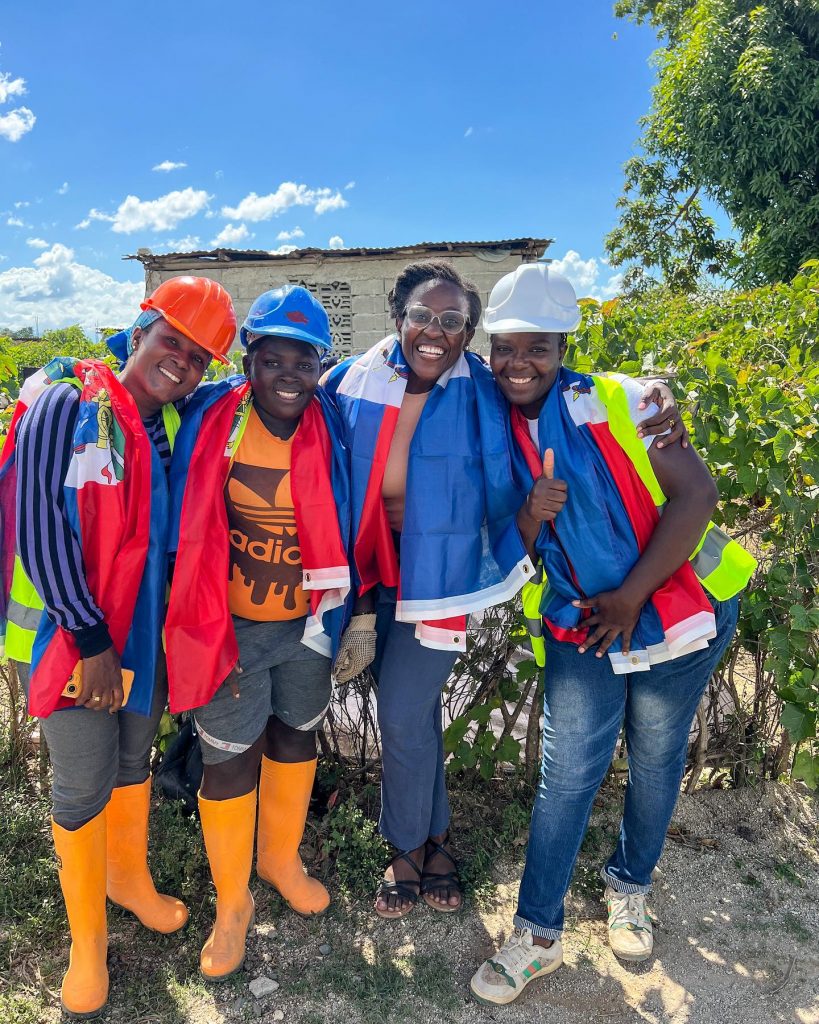
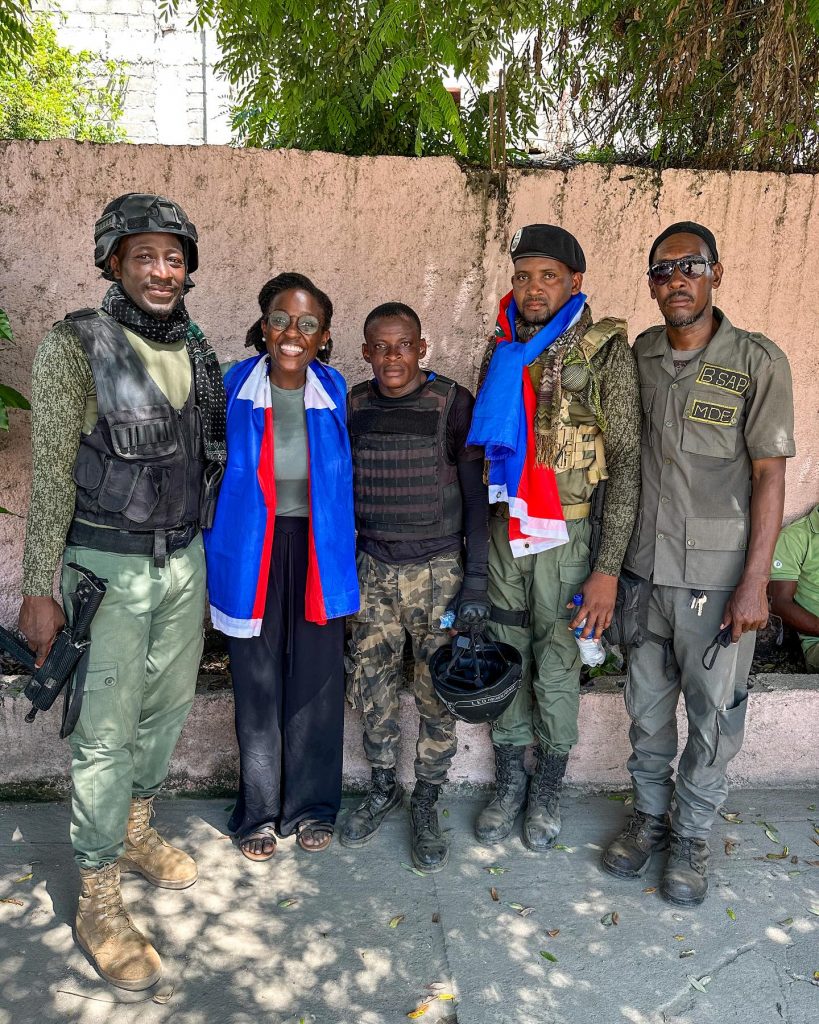
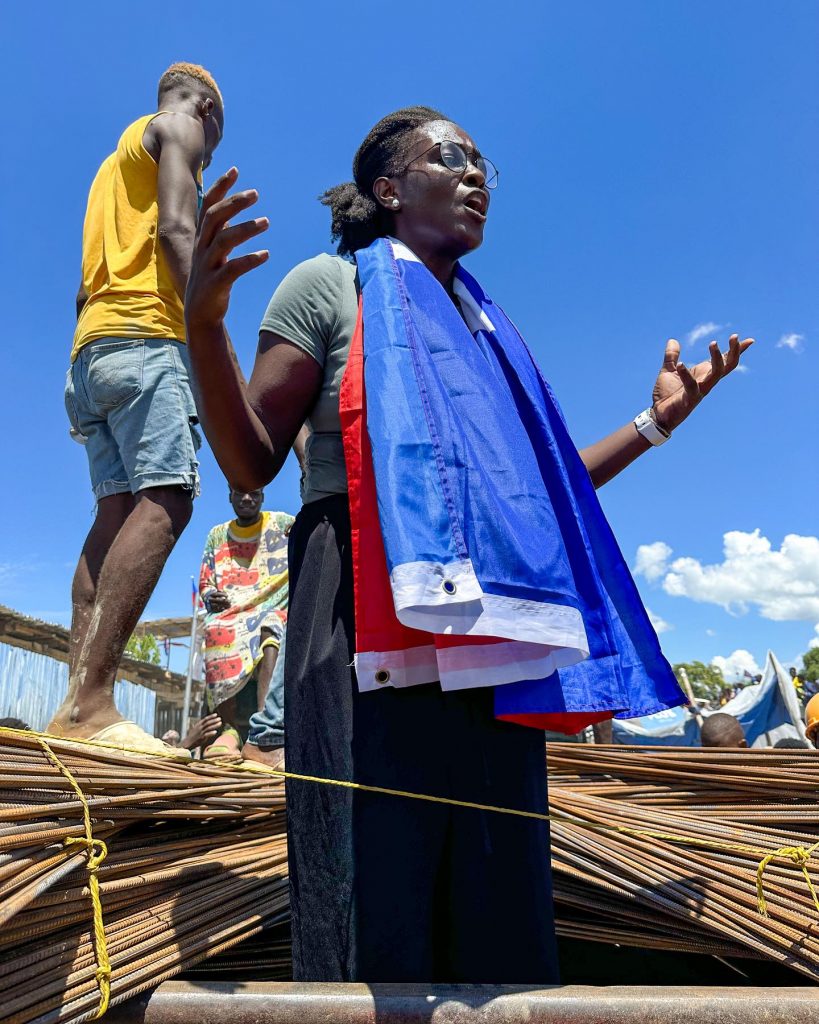
Bertrhude Albert and the Fight for Haiti’s Soul
Bertrhude Albert is one of the most vocal and influential supporters of the Haitian cause and her Instagram account is the tip of her spear. She immigrated to the United States when she was 8 years old but remembers her native land clearly in her mind and heart. And it shows. Bertrhude uses all of her influence and visibility to gain support and momentum for a cause she considers just and right.
As President of Projects of Haiti, Inc., and CEO of P4H Global (formerly Projects for Haiti), Bertrhude has extensive experience and insight into what’s troubling Haitian society. Her activity and social involvement showcase as much. Bertrhude uses her influence to rally people to her cause – and has done so with great success so far.
Her organization received tens of thousands of dollars in donations, which she used to deliver food and goods for canal workers and security personnel on-site. The more than $80,000 in donations also bought over six tons of iron and 1,000 sacks of cement to support the construction of the canal.
Her organization received tens of thousands of dollars in donations, which she used to deliver food and goods for canal workers and security personnel on-site. The more than $80,000 in donations also bought over six tons of iron and 1,000 sacks of cement to support the construction of the canal.
“This has all been possible because of your generosity,” Bertrhude wrote in an Instagram post to her supporters. “So, on behalf of all involved in the movement, the planning committee, the workers, the organizers, thank you! To ensure the highest level of transparency and accountability, every aspect of your support is being made public. As it should be!”
Most importantly, Bertrhude doesn’t do everything from behind a screen, from the comfort of her home desk. She goes boots on the ground to get the pulse of the situation. She meets people, organizes group trips, personally oversees the delivery of goods, and speaks with officials and those involved in the construction of the canal on site.
This gives her firsthand experience of what’s going on and how things are progressing so she can make informed decisions and keep all those involved in her charity work in the loop.
Going forward, Bertrhude is confident her cause will prevail. “This is about much more than just a canal,” she says. “This is an agricultural revolution. Haiti has been destabilized by international policies, and now Haitians are fighting to be self-sufficient once more. The canal symbolizes our fight for survival. Kanal la p ap kanpe.”

